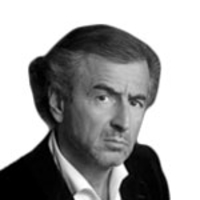Back in Ukraine…. But this time in several of the Russian-speaking cities in the eastern part of the country that the Western media describe as being hotbeds of separatist fever.

I am with Petro Poroshenko, the favorite in Sunday’s presidential election, whom I have not seen since his visit to France in April, when he conferred with French President François Hollande.
It is an American-style campaign that hits three cities a day, repeating the same frenetic ritual at each stop, from the small press conference to the rally in the thronged square in front of the basilica. In between, the campaign passes out signed photos of the candidate.
And, from this brief plunge into the other Ukraine, from these whistle stops in three cities with unpronounceable names (Dnipropetrovsk, Dniprodzerzhynsk, and Kryvyi Rih) with often troubled histories (Dniprodzerzhynsk was named in honor of Felix Dzerzhinsky, after all, founder of the Soviet secret police), from these campaign vignettes in the shadow of blast furnaces and mines, steel and coking plants, that have not changed since Soviet times (and that are an affront to the basic rules of safety and environmental protection)—from all this I draw several observations that are not irrelevant to the current debate.
First, there are a lot of people at the rallies. In each of the three cities, the candidate from Kiev holds huge meetings: the local equivalent of the Maidan full to bursting, crowds as far as you can see, flags and banners. I am not counting, but there are tens of thousands of men and women who took the trouble to come hear a Ukrainian patriot. And from what a distance they came! In Kryvyi Rih, which stretches over several dozen kilometers along mineral deposits and mine sites, it is said, not without pride, that the city is the longest in Europe—and equipped accordingly with the longest tramway line in the world.
Moreover, the people are happy to be there. Sooty faces from the flooded pits along the banks of the Inhoulets, workers worn thin from tending the metallurgical complex at Dniprovskiy, toothless men in their 50s whose life expectancy is not even 60—they cheer the candidate. What am I saying? They give him an ovation. And though they applaud in response to promises of better working conditions, wages in line with those that he pays workers in his own companies, and decent pensions, and cheer even more loudly when he evokes the suffering of this region bled white by wars, revolution, and counter-revolution, by the Holodomor and the Nazi occupation, they also respond, no more and no less than in Kiev, when he declares his determination to defeat corruption and bring transparency, to replace gangster government with the rule of law.
Even more encouraging and surprising in these lands over which hovers the shadow of the old Cossack kingdoms, in these devastated cities that, like Dnipropetrovsk, still pride themselves for having been the site of the factories that produced the Soviet Union’s first intercontinental ballistic missiles, Petro Poroshenko succeeds in making himself heard when, after declaring his intention to protect the rights of minorities, including the right to their language, he affirms his non-negotiable commitment to the crucible of nationhood that is the Ukrainian language. When he says, “There are no western Ukrainians or eastern Ukrainians; there are no Russian-speaking Ukrainians or Ukrainian-speaking Ukrainians—there is only one Ukraine, whole and indivisible,” I have the impression, for a fleeting moment, of hearing a great American proclaim, for the first time a decade ago, “There are no red states or blue states, just the United States.”
As for the people themselves, those that I had the chance to interview, some have been swayed while others are more skeptical and will remain loyal, they tell me, to the party of the home regions of former President Viktor Yanukovych. But all agree on two points.
First, the desire to vote. The corresponding fear being, of course, the risk of having their heads bashed by thugs who have come over from Russia to block the election. But there is a strong resolve to vote despite the risk, a fierce determination to vanquish the Vandals. And the hope of seeing the hundreds of observers dispatched by the international community finally begin to do their jobs and to dispel those who try to intimidate voters.
And second, the firm intention to remain part of Ukraine, whatever happens. We want to be better treated here, they say. We cannot stand any more of this poverty and desolation. We want a decentralized government that will give us more freedom to manage our own affairs. But decentralized does not mean federation. Don’t count on us to fall into the trap set by Mr. Putin when he urges a “federalism” that is nothing more than the dissolution of Ukraine.
A far cry from the terrible picture painted by Western opinion leaders.
Russian-speaking Ukraine is much more Ukrainian than those who are looking for reasons, good or bad, to yield to Putinism would have us believe.
The message of the rallies—is it really necessary to spell it out?—is aimed at those cynics, indeed at us—that is, at all the potential victims of a semantic war on which, as usual, everything will turn.
No to the phony federalism that is just a polite way of neutering the country in preparation for returning it, sooner or later, to the Russian dictatorial fold.
And yes to an electoral process that, in strengthening Ukraine, will also strengthen Europe—a process for which the great democracies must therefore stand as guarantors and guardians.






